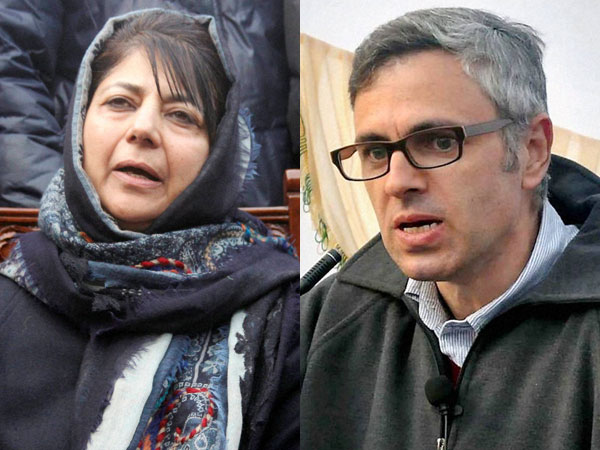National Conference Courts PDP for Rajya Sabha Support — Mehbooba Mufti Wields Land Rights as Political Leverage
By: Javid Amin | 16 October 2025
A Deal on the Edge of Power and Principle
In a charged political season, just weeks before the crucial Rajya Sabha elections, an old rivalry is being tested by new necessities. The National Conference (NC), led by Farooq Abdullah and Omar Abdullah, has reached out to the Peoples Democratic Party (PDP) helmed by Mehbooba Mufti for support in the upcoming polls.
But Mehbooba is not offering unconditional backing. She’s demanding something far more politically potent — legislative action on land rights and job security.
“Pro-people legislation must come first,” she reportedly told Farooq Abdullah during the initial round of talks.
At stake is more than just a seat in the Upper House of Parliament. It’s a battle over Kashmir’s land, identity, and political direction.
Understanding the Context: Rajya Sabha Elections & Political Math in J&K
With the Rajya Sabha elections slated for the coming months, J&K’s post-Article 370 political landscape has become a chessboard where every vote matters.
Unlike Lok Sabha contests, Rajya Sabha seats are filled through indirect elections by MLAs. With a fractured Assembly and no single party holding a dominant majority, coalition arithmetic is critical.
-
NC’s Objective: Secure a Rajya Sabha seat and reassert its central political relevance.
-
PDP’s Leverage: With a small but strategically significant number of legislators, PDP can tilt the balance.
And that leverage is being wielded with precision.
Mehbooba’s Conditions: Land and Jobs — Two Nerves of Kashmir
Mehbooba Mufti has made it clear that PDP’s support is not for free. Her two preconditions — Land Protection Bill and Regularisation of Daily Wagers Bill — touch the core emotional and economic anxieties of post-2019 Jammu & Kashmir.
Land Protection Bill: Reclaiming a Vanishing Right
After the abrogation of Article 370 of the Constitution of India in August 2019, land ownership laws in Jammu & Kashmir underwent sweeping changes. Non-residents could now buy land in the region — something that was constitutionally restricted for decades.
For many Kashmiris, land isn’t just property — it’s identity, livelihood, and inheritance.
The PDP has proposed:
-
Safeguards to prevent large-scale land transfers to non-locals.
-
Restoration of land use rights for agricultural and tribal communities.
-
Legal frameworks to limit speculative or commercial encroachment.
“Without land, Kashmir loses its soul,” Mehbooba has said repeatedly at public rallies.
By making the Land Protection Bill a precondition for RS support, PDP is politicizing an issue already emotionally charged, making it difficult for NC to ignore without appearing disconnected from grassroots sentiment.
Regularisation of Daily Wagers Bill: A Socio-Economic Lifeline
For decades, daily wage workers in government departments — from electricians and linemen to clerks and sanitation workers — have remained in employment limbo. Many have served for 10–20 years without permanent status, benefits, or job security.
This issue affects tens of thousands of families across Jammu & Kashmir.
The PDP wants:
-
Legal regularisation of long-term daily wagers.
-
Clear timelines for absorption into permanent cadres.
-
Social security nets for families dependent on these jobs.
“How can you build a just society if those who keep the lights on have no guarantee of bread?” Mehbooba remarked in a recent speech in Pulwama.
For NC, agreeing to this bill could be politically advantageous — but it would also require navigating fiscal and bureaucratic hurdles.
NC’s Dilemma: Political Necessity vs. Strategic Autonomy
While NC needs PDP’s support to ensure smooth passage of its Rajya Sabha candidate, agreeing to Mehbooba’s conditions comes with significant trade-offs.
-
✅ Political Upside:
-
Projects NC as responsive to public concerns.
-
Rebuilds bridges with PDP after years of rivalry.
-
Strengthens anti-BJP regional bloc.
-
-
❌ Potential Risks:
-
May alienate some Jammu legislators who oppose exclusive land laws.
-
Fiscal strain from regularising thousands of workers.
-
Limits NC’s policy autonomy.
-
Omar Abdullah, known for cautious political maneuvering, must now decide whether to embrace a populist stance or guard legislative independence.



